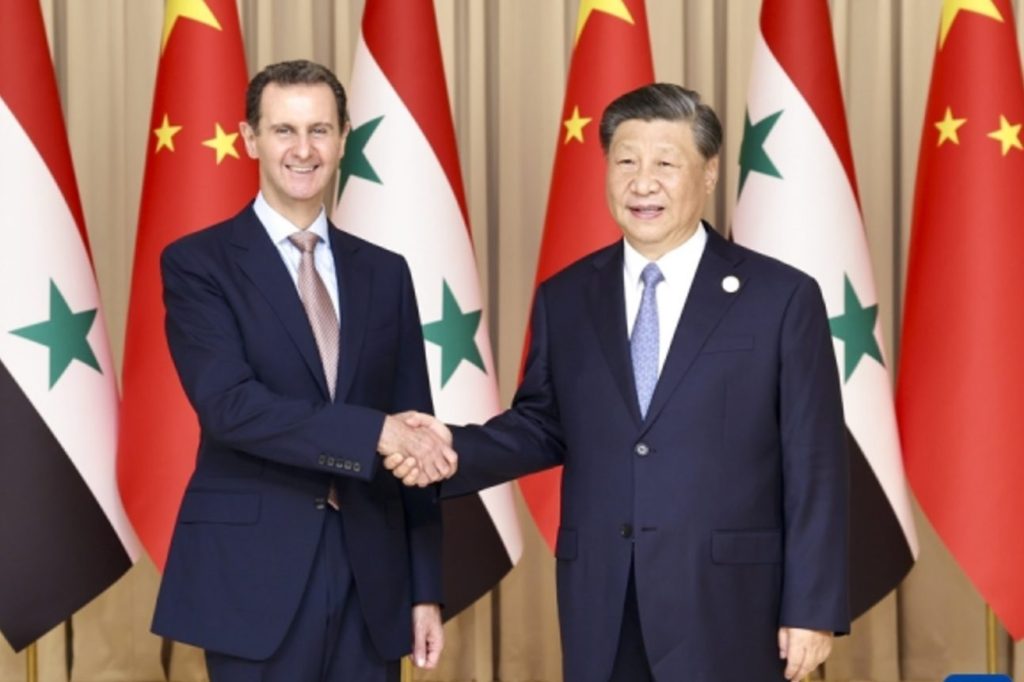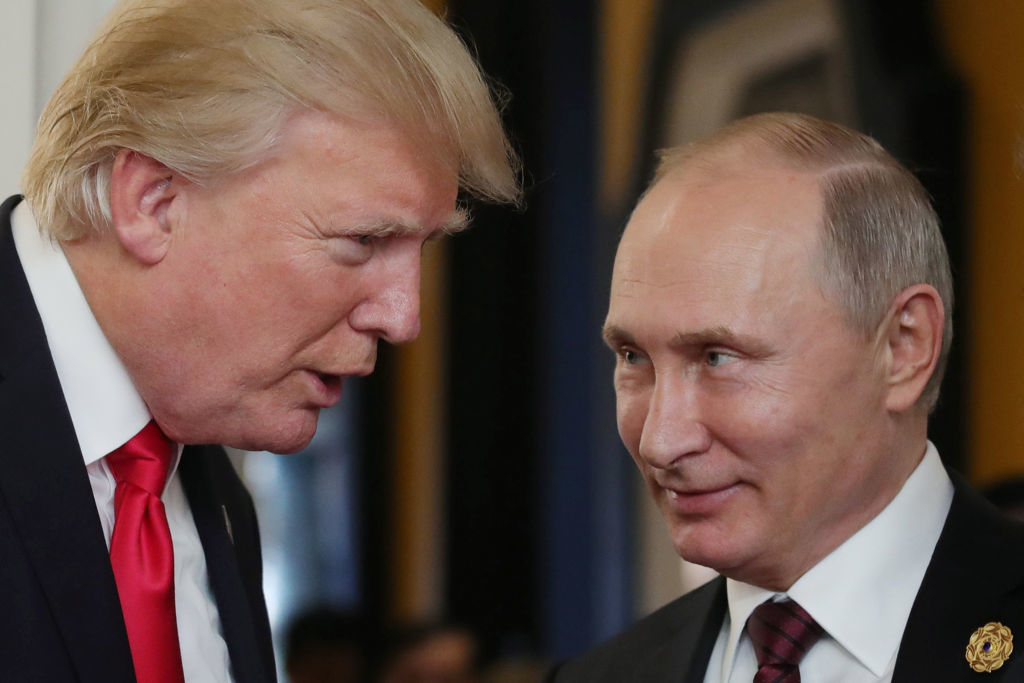Russia and Iran kept Bashar al-Assad in power and are the biggest strategic losers from the toppling of his brutal regime. But also spare a thought for Xi Jinping, who used the dubious “stability” imposed on Syria by Tehran and Moscow to embrace the butcher of Damascus in a bid to extend Beijing’s influence in the region.
“The future and destiny of Syria should be decided by the Syrian people, and we hope that all the relevant parties will find a political solution to restore stability and order as soon as possible,” said Mao Ning, spokesperson at the Chinese foreign ministry, on Monday, in one of those deliciously vacuous statements so beloved of Beijing’s diplomats. Earlier, the Chinese embassy in Damascus had urged its citizens to leave Syria “as soon as possible,” since they could face “extremely high” security risks.
Beijing has given Assad strong diplomatic and political support, while offering to help him rebuild his war-torn country
Beijing has given Assad strong diplomatic and political support, while offering to help him rebuild his war-torn country. Last year, the Syrian dictator conducted a high-profile visit to Beijing and Hangzhou, during which he met Xi, who urged all countries to lift “illegal unilateral sanctions against Syria,” a reference to the economic sanctions imposed by the US and other western countries. The two leaders announced the formation of what they called a “strategic partnership,” and Xi said, “China supports Syria’s opposition to foreign interference, unilateral bullying… and will support Syria’s reconstruction.” Assad thanked China for being with Syrians “during the crisis and suffering.”
A year earlier, China had offered Assad membership of its Belt and Road Initiative (BRI), a program that started life as a vast investment program, promising billions of dollars for infrastructure projects along modern day “silk roads,” trade routes encircling the globe, but has morphed into an umbrella for just about everything Beijing does internationally to extend its influence. The offer came from China’s foreign minister Wang Yi, who was the first high-profile guest in Damascus after Bashar al-Assad’s rigged re-election as president. The Syrian leader claimed to have won 95 percent of the vote in a poll described by the EU as “neither free nor fair.”
The BRI has long been over-hyped and under principled, with China feeling much at home in the company of thugs and kleptocrats. But even by those standards the embrace of Assad still raised eyebrows at the time. Some also saw it as evidence of the growing strength of the autocratic alliance between China, Russia and Iran — the guns and muscle of Tehran and Moscow keeping Assad in power during a civil war that claimed more than half a million lives, with Beijing stumping up the development cash. At least that was the theory. China’s embrace of Assad can also be seen as part of its wider diplomatic engagement in the Middle East, the high point of which was a March 2023 a deal between Saudi Arabia and Iran to end a seven-year-long diplomatic rift.
On Monday, Beijing was said to be “closely following the situation” in Syria. Just a few months ago, it was boasting that its relations with Syria has reached a “new level,” now the Global Times, a government tabloid, is describing the fall of Assad as “dramatic and astonishing.” It is not clear how many of the promises China made to Syria actually bore fruit, and therefore how many Chinese citizens are in Syria — the BRI does tend to be long on promises and short on delivery. But the fall of Assad, while perhaps not the dramatic strategic reversal delivered to Iran and Russia, is still a blow to the regional ambitions of Xi Jinping.

























